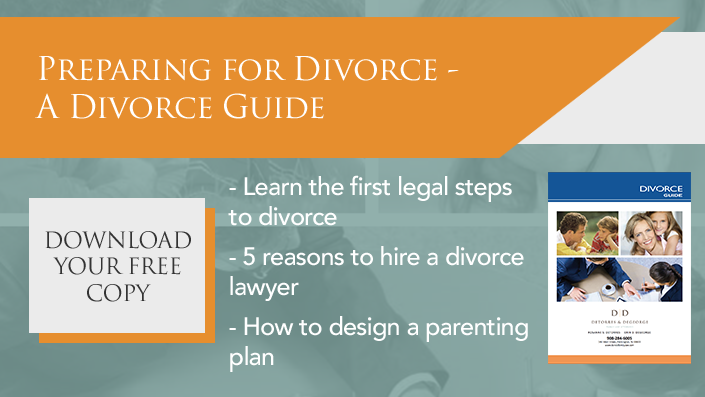 Choosing to move forward with a divorce is a big decision—and one that is not taken lightly. There are many aspects of your life that you will want to consider when determining whether divorce is the right choice for you and your spouse. Here are three questions to ask yourself when deciding to divorce:
Choosing to move forward with a divorce is a big decision—and one that is not taken lightly. There are many aspects of your life that you will want to consider when determining whether divorce is the right choice for you and your spouse. Here are three questions to ask yourself when deciding to divorce:
1. What is the appropriate cause of action under which to file?
There are a number of causes of action, or “reasons,” to file for divorce—such as adultery, extreme cruelty, and addiction. These types of filings are known as “fault” causes of action and will require that you prove that the cause of action was in existence during the divorce. For example, you will need to prove that your spouse had an affair, had a substance-abuse issue, or acted in a manner that constitutes extreme cruelty. There are also “no fault” bases for divorce in New Jersey—either irreconcilable differences or 18 months of separation. When you are filing under irreconcilable differences, you are simply stating that things didn’t work out for a period of at least six months and that there is not a possibility of reconciliation. There is no need to prove anything beyond that.
Deciding which cause of action you want to file under when deciding to divorce will be one of your first steps once you retain an attorney. A common misconception in New Jersey divorce law is that you will receive more under the law if you file under a fault cause of action. However, this is not true; you are not entitled to more money, property, or time with the children because your husband cheated on you, for example. Therefore, it is often a recommendation of your attorney that you file under a no-fault provision in order to maintain some civility in your case as it begins.
2. How will your day-to-day life be impacted?
The one thing that seems basic, in theory, is often the exact same thing that people going through a divorce end up struggling with. While you may be certain that you do not want to be married to your spouse anymore, it may take longer for you to realize the impact of your divorce on your day-to-day life. For example, it’s common for women who primarily raised their children during the marriage to be confronted with the prospect of returning to work. This can be overwhelming and emotional. There are a host of new worries when deciding to divorce, such as the cost of daycare for young children, a change in schedule for older kids who are used to having a parent home after school, and the fear of returning to something you may not have done in years. These are all things that require thought and planning during the divorce process. It may also be somewhat of a shock the first few times your children go to parenting time with their other parent. You suddenly have time to yourself that you may not have had in years. You may also experience the opposite: shock at the realization that you can’t necessarily see your kids whenever you want, as you previously did.
3. What will be the financial impact?
This is related to the impact of day-to-day life, but it is also important in its own right when deciding to divorce. When you go through a divorce, you may receive an award of alimony or child support based on your circumstances. You will also divide your marital property in a process known as equitable distribution. This may mean that you will have a large amount of cash from the sale of the marital residence, for example, or retirement accounts that have been divided but cannot yet be accessed. Whatever the situation, it is a good idea to meet with a financial planner or other financial professional to aid you in creating a budget based on your new reality or managing your assets in the best way for your family.
What comes next
Once you make the decision to divorce, you may be confused about what should come next. Your first step should be to schedule an appointment with an attorney who can advise you on the best course of action for your case. In some instances—for example, when you and your spouse remain on good terms—it may be beneficial to try to resolve your case prior to filing a complaint for divorce. In other cases, it may be that time is of the essence and filing the complaint for divorce as quickly as possible is necessary to maintain the status quo and preserve assets.
At an initial consultation, an attorney will meet with you to discuss the facts of your case, often including your children, any discussions about custody and parenting time, your assets and liabilities, and your hopes for the final resolution of your matter. You may also talk to the attorney about what cause of action you will file your complaint for divorce under. In most instances, people file under the no-fault provision, known as irreconcilable differences. This essentially means that there’s no real reason for the divorce, but the marriage is not sustainable. However, there are many other causes of action, and you may wish to file under one of those provisions.
If you decide that you would like to continue to be represented by that same attorney as you move forward with your divorce, you will be asked to sign a retainer agreement and will be required to pay the retainer fee. The retainer agreement outlines the rights and responsibilities of both the client and the attorney. The amount of the retainer fee varies based on the specific circumstances of your matter. This retainer fee is also utilized for the costs associated with your case, including things like the fee charged by the court to file your complaint for divorce.
Your attorney will draft a complaint for divorce based on your prior discussions. Once you review the complaint and sign off on all of the necessary documents, your attorney will file it on your behalf. It often takes a few weeks for the complaint to be returned from the court. Once it is received by your attorney, you will be contacted and asked how you want your spouse to be served with the complaint. Once the complaint has been served on your spouse, he or she has 35 days to file an answer and counterclaim. When these documents have been filed with the court, the court will begin scheduling court dates in order to manage the case and ensure that it moves along per the court rules.
If you have decided to divorce and have additional questions about the process, schedule a consultation with the attorneys of DeTorres & DeGeorge.


 START LIVE CHAT
START LIVE CHAT










